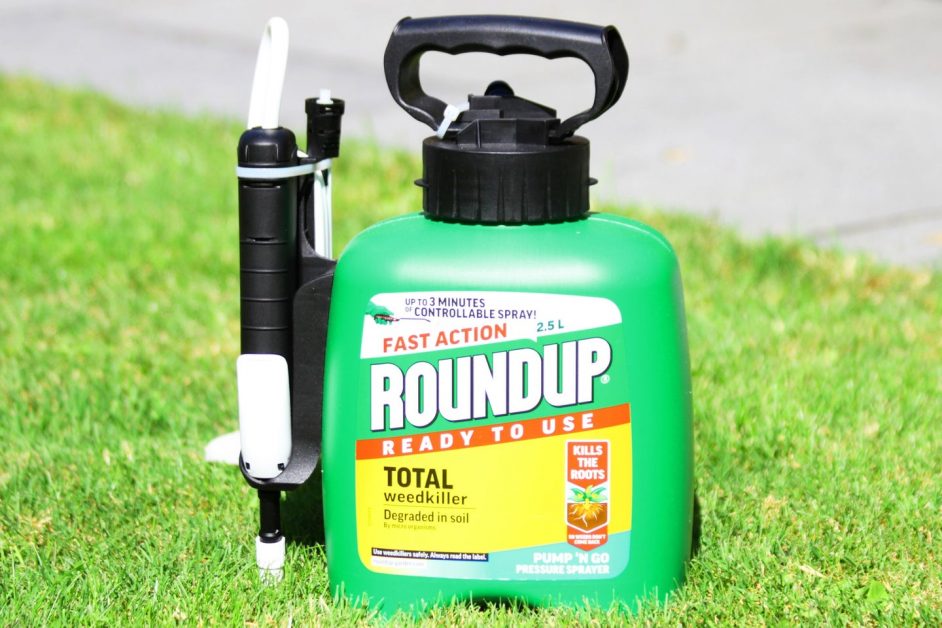Roundup is the most popular weed killer sold today, but has also received a lot of criticism in recent years due to concerns over its safety. So, is Roundup biodegradable and is it safe for the environment? We find out.
What is Roundup?
Roundup is the brand name for a glyphosate-based weed killer made by Monsanto (Bayer).
The main and active ingredient in Roundup is the acid molecule glyphosate which is a known herbicide. Glyphosate in this application takes the form of isopropylamine salt for safer packaging and handling.
The other important ingredient in some Roundup formulations is the surfactant polyethoxylated tallow amine (POEA). This helps Roundup bind to leaves and plant cuticles.
Roundup is applied by spraying it directly onto weeds and other unwanted grasses and broadleaf garden plants. Roundup binds tightly to soil particles and doesn’t migrate to affect untreated plants nearby.
Is Roundup Biodegradable?
Yes, Roundup is biodegradable.
Glyphosate binds tightly to soil and is eventually broken down by microbes. Its half-life is anywhere between 1 and 174 days depending on soil type and composition. Any Roundup that leeches out of soil and into a nearby body of surface water can take 12 days to 10 weeks to break down and biodegrade.
Glyphosate is broken down or biodegraded by bacteria in soil. It is unlikely to contaminate groundwater because it binds tightly to soil. One study showed that half of the glyphosate found in dead leaves broke down in 8 to 9 days.
What Does Roundup Decompose Into?
Roundup breaks down quickly into natural compounds like carbon dioxide and nitrogen. Roundup inhibits the production of an important enzyme that plants and bacteria use to make amino acids called EPSP synthase. Without these amino acids (food), plants eventually die.
Is Roundup Eco Friendly?
So just how bad is Roundup for the environment?
Glyphosate is one of the most widely used herbicides in existence. Scientists and researchers say that the levels of glyphosate in the environment could continue to build up and eventually cause a negative ecological impact to our eco system.
In 2017, the EPA declared glyphosate to be safe and ‘not likely’ to cause cancer in humans. Research is still ongoing into this chemical to find out whether it is carcinogenic and what its lasting effects are.
Glyphosate is likely to be fairly harmless in small quantities, but repeated and significant exposure over time is likely to cause harm to us and the environment.
Conclusion
Roundup is biodegradable and studies suggest that its environmental impacts are limited.
The perception of Roundup’s sustainability is likely to continue to change over time, and at some point, Round could even be banned.
As of July 2021, Bayer will no longer sell Roundup products that contain glyphosate to the US domestic market.
